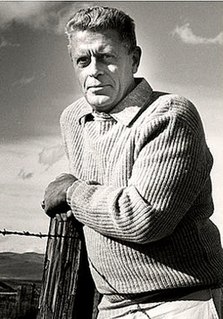A Quote by Thomas Aquinas
Every judgement of conscience, be it right or wrong, be it about things evil in themselves or morally indifferent, is obligatory, in such wise that he who acts against his conscience always sins.
Related Quotes
Another doctrine repugnant to Civill Society, is that whatsoever a man does against his Conscience, is Sinne ; and it dependeth on the presumption of making himself judge of Good and Evill. For a man's Conscience and his Judgement are the same thing, and as the Judgement, so also the Conscience may be erroneous.
Although there is nothing so bad for conscience as trifling, there is nothing so good for conscience as trifles. Its certain discipline and development are related to the smallest things. Conscience, like gravitation, takes hold of atoms. Nothing is morally indifferent. Conscience must reign in manners as well as morals, in amusements as well as work. He only who is "faithful in that which is least" is dependable in all the world.
True law, the code of justice, the essence of our sensations of right and wrong, is the conscience of society. It has taken thousands of years to develop, and it is the greatest, the most distinguishing quality which has developed with mankind ... If we can touch God at all, where do we touch him save in the conscience? And what is the conscience of any man save his little fragment of the conscience of all men in all time?
Given - and this is the fundamental thing - that God's mercy has no limits, if He is approached with a sincere and repentant heart, the question for those who do not believe in God is to abide by their own conscience. There is sin, also for those who have no faith, in going against one's conscience. Listening to it and abiding by it means making up one's mind about what is good and evil.
Man in his raw, natural state as he comes from the womb is morally and spiritually corrupt in disposition and character. Every part of his being-his mind, his will, his emotions, his affections, his conscience, his body-has been affected by sin (this is what is meant by the doctrine of total depravity)





































